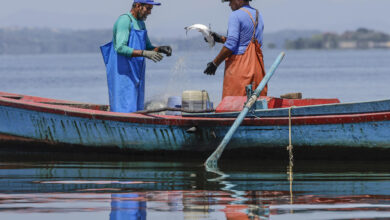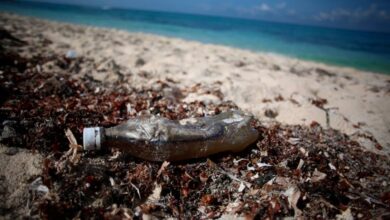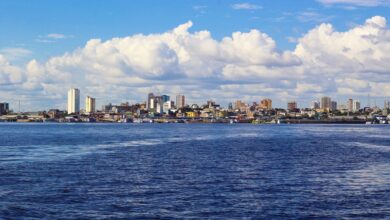Alternatives for a plastic-free planet
Some countries are already planning to stop using plastic as a daily material.

The excess waste dumped into the oceans reaches alarming figures of almost 5 million tons of garbage of this element. Photo: Unsplash
LatinAmerican Post | Moisés Campos
Listen to this article
Leer en español: Alternativas para un planeta sin plástico
The growing plastic pollution rose 50% almost three decades ago and since then it has remained unchecked. This causes excess waste dumped into the oceans with alarming figures of almost 5 million tons of garbage of this element.
According to what was published in the article in the journal Science, in February of this year, it is estimated that for ten years the increase in plastic pollution in the oceans contains 90% of plastic waste and this figure continues to rise. The land area is the main culprit of these damages and the most developed countries are the main cause of this condition in the seas.
The United States is one of the nations that produce the most toxic waste in the seas of the American continent, however, it is only in the twentieth position of countries with the highest accumulation of plastic waste in the world.
Scientific opinions on plastic disposal
According to the investigation of Marcello Casal Jr./Agência Brasil; studies to eliminate plastic agree that the polymer degradation process is slow. The omens for the future are negative, due to the exaggerated accumulation of these wastes.
Plastic Disclosure Project and Plastic Pollution Coalition; is centered on 4 fundamental axes that have been called "The four Rs", which consist of:
- Recover.
- Reduce.
- Re-use.
- Recycle.
Starting from this initiative the most accepted alternative has been the maximum reduction in the use of plastic worldwide.
Plastic substitute products
Scientists affirm the efficacy of using products that do not contain polymers. They propose the reduction and, if possible, the total elimination of all this material. Instead, they suggest these substitute items:
- Crystal.
- Wood.
- Stone.
- Wool.
- Metal.
- Paper.
- Ceramics.
Acquiring new habits regarding the use of biodegradable products could achieve the goal of reducing plastic pollution.
Some actions you can take include:
- The use of reusable bags made of fabric, wool, paper, others.
- Do not buy frozen food.
- Buy products packed in cardboard or glass.
- Use glass, metal, or steel containers.
Bioplastic and biodegradable materials
The Italian Institute of Technology in Genoa, led by Ilker Bayer and Athanassia Athanassiou, is leading research on biodegradable processes and working to expand plastic replacement options.
- Bioplastics with easy degradation: Starch and cellulose are elements that are being investigated for the manufacture of new types of plastics. However, some also become cumulative waste.
- Bioplastics from plant waste: Plant waste is an option qualified by researchers to be included in the list of biodegradable materials. These are parsley, spinach stalks, rice husks or cocoa.
- Biodegradable bags: Substitute bags are those capable of converting once used into items that can be reused or be rapidly degrading waste.
- Water-soluble bags: The invention of bags that dissolve in water is a great alternative to the constant use of these elements. They do not produce toxic substances and are completely disposed of due to their rapid and effective biodegradation.
Microbes that eat plastic
What to do with the millions of tons of plastic waste? This work deserves a state-of-the-art technological solution. Biotechnology is the use of organic processes in ecosystems that are capable of eliminating waste gradually but permanently.
Also read: What you need to know about the 5th UN Environment Assembly
It consists of the placement of bacteria on plastic waste to create a natural degradation. This treatment requires special conditions with respect to temperatures, solar incidence and ultraviolet lights so that they act aggressively on the waste.
According to a study by Beihang University in Beijing (China), this method can be applied without the need for the conditions described.
Plastic disposal laws
In 1990, the United States decided to ban the use of plastic bags in the Nantucket region. The measure consists of the prohibition of their use individually and promotes the reduction of these to store several products in a single purchase.
In China, businesses began to charge for bags used in each purchase, causing a reduction in their use. The use of these elements fell to 50% in that country.
In the European Union, the rulers have approved laws to reduce the use of plastic bags by up to 80%. While Italy completely eliminated the use of non-biodegradable bags in 2011.
Advantages of plastic substitute products
There are many benefits that these implementations promise that are worth highlighting to maximize these goals:
- Efficacy of biodegradable products compared to elements originating in petroleum.
- Absence of the organic need for plastic.
- Use of other natural resources.
- Increased sanitation of the oceans.
- Increased health in populations.
- Improvement of water systems.
- New economies from biodegradable and bioplastic industries.
Disadvantages
According to the studies previously exposed, these are the main disadvantages of the alternatives for a plastic-free planet:
- The plastic-free economy is more expensive.
- Compliance enforcement is beyond the responsibilities of organizations and industries.
- The global consciousness deficit is high.




